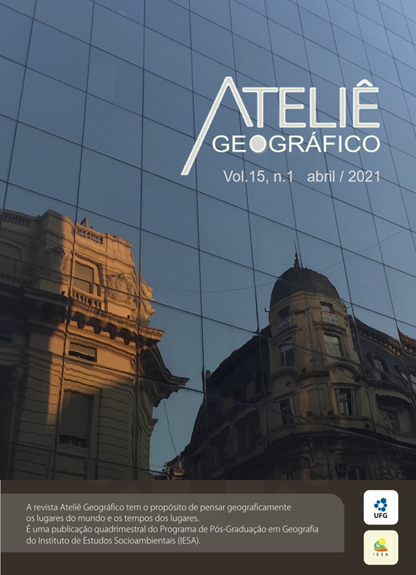Análise da disposição de resíduos sólidos urbanos em Minas Gerais e em cidades médias do Grupo Bambuí
DOI :
https://doi.org/10.5216/ag.v15i1.65182Résumé
Minas Gerais possui aproximadamente 580.000 km2 e cerca de 29.000 km2 são desenvolvidos em carbonatos. Com 853 municípios, uma grave questão é a disposição final de resíduos sólidos urbanos (RSU), particularmente em cidades médias. Desde 2000, instrumentos legais foram publicados para disciplinar a disposição de RSU, embora a realidade esteja longe de ser ideal. Assim, a pesquisa analisou a disposição de RSU em Minas Gerais, de 2008 a 2015, especificamente nas cidades médias desenvolvidas sobre os carbonatos do Grupo Bambuí. Estabeleceu-se a relação entre o direito fundamental à saúde e a necessidade de se proteger o carste e seus aquíferos para manutenção da qualidade ambiental. Dos 167 municípios desenvolvidos sobre o carste, 34 possuem cidades médias. Os resultados demonstram que o direito à saúde e ao saneamento podem ser comprometidos devido à falta de estudos sobre a importância do carste na manutenção da qualidade ambiental e sobre como as cidades médias devem se desenvolver quando sobre esse frágil geossistema.
Palavras-Chave: Direito à saúde, Cidades Médias, Carste, Minas Gerais.
Téléchargements
Téléchargements
Publié-e
Comment citer
Numéro
Rubrique
Licence
Autores que publicam nesta revista concordam com os seguintes termos:- Autores mantém os direitos autorais e concedem à revista o direito de primeira publicação, com o trabalho simultaneamente licenciado sob a Licença Creative Commons Attribution que permite o compartilhamento do trabalho com reconhecimento da autoria e publicação inicial nesta revista.
- Os autores não serão remunerados pela publicação de trabalhos na Revista Ateliê Geográfico. Além disso, os conteúdos publicados são de inteira e exclusiva responsabilidade de seus autores, ainda que reservado aos editores o direito de proceder a ajustes textuais e de adequação às normas da publicação.
- Autores têm permissão e são estimulados a divulgar seu trabalho online (ex.: em repositórios institucionais ou na sua página pessoal), já que isso pode gerar alterações produtivas, bem como aumentar o impacto e a citação do trabalho publicado (Veja O Efeito do Acesso Livre).


